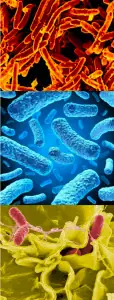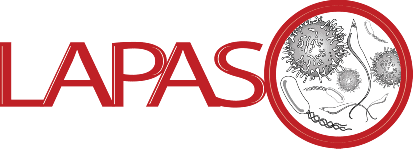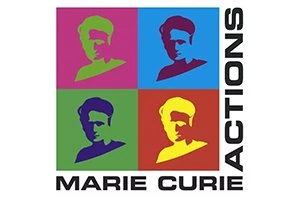Label-free cell sorting for malaria detection: LAPASO
Author
Christa Ivanova, PhD
Publication Date
October 10, 2013
Status
Keywords
Label‑free particle sorting
Lab-on-a-chip
Cell sorting
Dielectrophoresis
Malaria diagnostic
Parasitic disease
Real‑time deformability cytometry
Particle fractionation
Your microfluidic SME partner for Horizon Europe
We take care of microfluidic engineering, work on valorization and optimize the proposal with you
This project aims to develop a label-free microfluidic cell sorting device to detect parasites such as malaria in blood samples rapidly.
The final aim of this project is to ensure the spreading of our low-cost lab-on-a-chip into emerging countries.
The first lab-on-a-chip for low-cost malaria detection: introduction

The MIC is a full partner of the Lapaso European consortium. Microfluidic particle fractionation based on the inherent properties of cells, microorganisms, and organelles offers significant improvements over conventional techniques in ease of handling and use, speed, and cost reduction.
Our objective is to consolidate the field at the European level and create a unique, comprehensive training program based on solid experimental and theoretical foundations.
LAPASO provides a unique training opportunity for 15 fellows in a highly interdisciplinary and intersectoral environment.
Our overarching scientific objective is to advance diagnostics for a wide range of critical medical conditions using cutting-edge microfluidics and nanobiotechnology integration.
Microfluidic label-free cell sorting: project description
Developing novel label-free cell sorting schemes based on particle morphology, deformability, and dielectric properties combines experimental approaches with advanced modeling techniques.
The study of morphology-sensitive sorting to learn about bacterial pathogenesis and to develop devices that provide improved diagnostics of bacterial disease and information about subpopulations to assist targeted treatment.
The study of morphology and deformability-sensitive sorting to enrich parasites and parasite-infected cells for more straightforward and quicker diagnostics of severe diseases. The study of the physical characteristics of rare cells to develop optimum sorting schemes for extracting rare stem cells from bone marrow.
A Pack has been assembled for label-free cell sorting.
This project has received funding from the European Union’s Horizon 2020 research and innovation programme under the Marie Sklodowska-Curie grant agreement No 607350 (LAPASO).
Do you need more information ? You can have a look at Alessandra’s review about optical detection in microfluidics.



Check our Projects
FAQ – Label-free cell sorting for malaria detection: LAPASO
In a nutshell, what was LAPaSO?
A European collaborative network that had developed label-free microfluidic sorting to enrich and analyse cells and parasites. The network was expressly aimed at providing disease-specific diagnostics at low cost and in a field-ready format, such as malaria.
What is meant by label-free sorting in that case?
Using intrinsic physical parameters (size, stiffness, dielectric response, acoustic contrast) to isolate cells or particles without the use of fluorescent markers or antibody labels. At LAPaSO, the fundamental technologies were dielectrophoresis (DEP), deterministic lateral displacement (DLD), and acoustophoresis, with impedance and deformability cytometry being used in biomedical applications.
What is the use of that in diagnostics of malaria?
Due to the fact that the malaria parasites and infected erythrocytes change their physical signatures (size, deformability, electrical properties). These targets can be pre-enriched or directly separated in a label-free chip and reduces the reagent cost along with the workflows in environments where the supplies and cold chains are weak.
What was it that the consortium actually constructed and tested?
Fractionations using DLD, DEP/acoustic sorters, and single cell readouts (impedance and real-time deformability cytometry) have been demonstrated to work with parasitology samples, bacteriology samples, and success stories have been reported separating Leishmania promastigotes and red blood cells due to the physics-first approach being generalizable across multiple pathogens.
So, what is the position of the Microfluidics Innovation Center (MIC)?
MIC works on the engineering front of the label-free systems: actual flow management, chip design/fabrication, and integration of instrumentation. That make it work on a bench, and then in a clinic attitude of European consortia would increase two-fold proposal success over formal baselines on similar calls, and, most importantly, would boost prototypes to testable cartridge with SOPs and QC.
Comparison of LAPaSO with other tests: fluorescent FACS or antibody based tests?
FACS is still excellent in immunophenotyping; however, it is costly, hard to maintain, and relies on labels. The ruggedness and cost control of Label-free microfluidics are at the expense of marker specificity. In resource-constrained diagnostics, such as in malaria, that trade frequently prevails as you can enrich yourself in advance without the use of antibodies and then proceed to confirm by a lightweight molecular or microscopic step.
What are realistic values of sample types and throughputs?
A reasonable design envelope is whole blood (finger-prick volumes) that are subjected to inertial/DLD or acoustic stages of around millilitres per hour per chip. As any microfluidics device can be scaled using parallelization, which is a typical microfluidics trick, it becomes possible to reach clinically relevant throughputs with a relatively small hardware. Those throughput regimes are reflected in the application packs of MIC (spiral or pillar chips + high-accuracy controllers).
What are the major engineering guardrails of an engineer-fieldable device?
Strong anti-clogging geometries, hemocompatible surfaces, on-chip debubbling, and control of flow/pressure closed loop. So separation cut-offs do not drift. A basic optical or impedance display makes you an architecture based on a cartridge which can be operated out of core lab with minimum calibration.
Are the science questions about the LAPaSO closed, or are there any open science questions?
There are still plenty to be had: how to sustain the enrichment performance with the variability in hematocrit; how to do confirmatory assays (e.g., rapid isothermal genotyping) without increasing the cost; and how to actually measure the mechanical biomarkers as decision parameters and not merely pre-enrichment. The low-cost and label-free chips continue to be driven by the recent literature into the front line of malaria screening–so the clock is not out yet.
Conclusion to a consortium in search of a partner SME?
Bring MIC in early. We assist in locking the physics, converting it into chips that can be manufactured, and provide the control electronics and benches that will ensure the reviewers. That end-to-end contribution – engineering, proposal writing, exploitation – in our projects in the EU, is what causes proposals to go from being seen as promising to be fundable, and ideas such as LAPaSO, to become prototypes that can be experimented with.